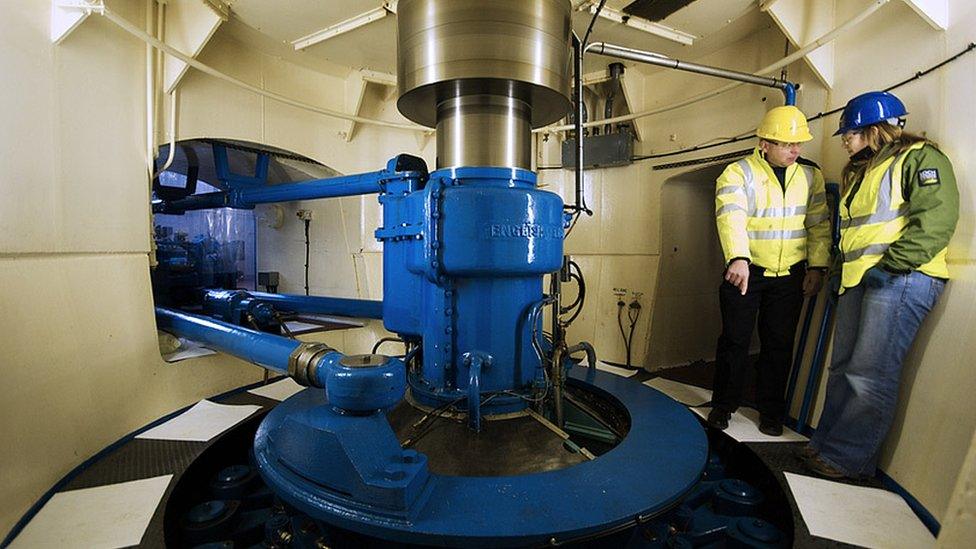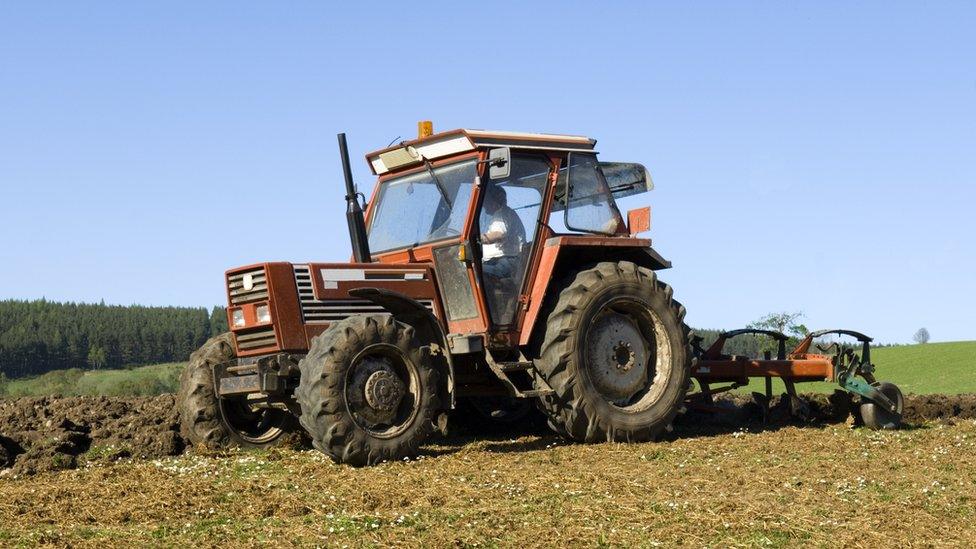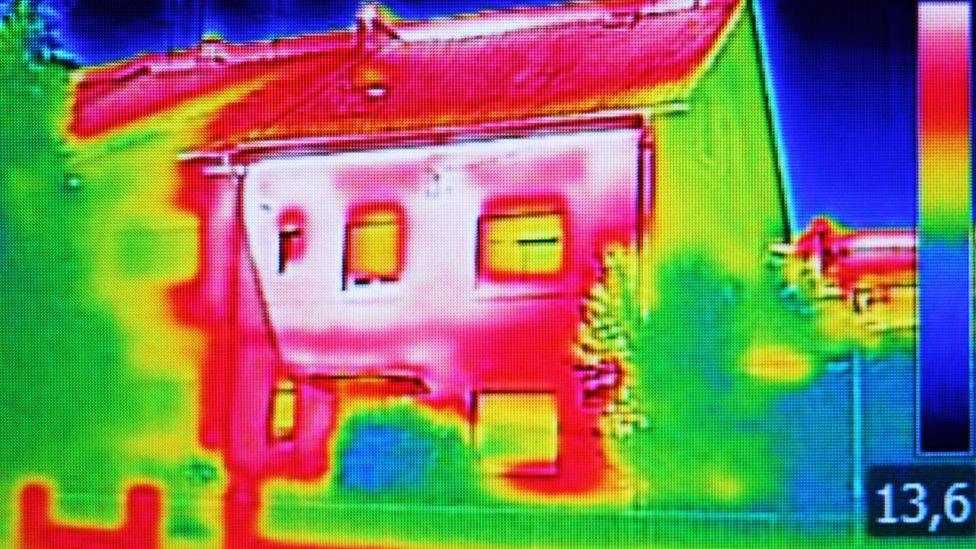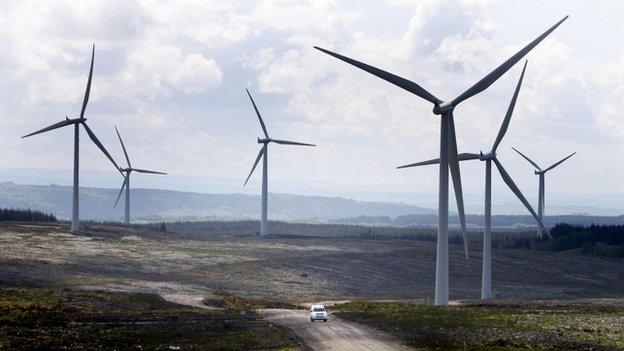Scotland 'leads UK' on climate change
- Published

The report praises Scotland's capacity for generating electricity from renewables
Greenhouse gas emissions fell further in Scotland than the rest of the UK in 2014, according to the latest report from the Committee on Climate Change.
This is the first year annual targets have been met, with net emissions falling by 13%.
But the committee said the reductions were partly down to the relatively warm winter weather.
The Scottish government said the report highlighted the "excellent progress" made in reducing greenhouse emissions.
The committee produces an annual report assessing the Scottish government's actions on tackling the greenhouse gas emissions which lead to climate change.
Emissions in 2014 were almost 46% lower than 1990 levels, the report found.
The committee praised the government for generating more electricity from renewables, but said "strong, credible policies" were needed in the transport and agriculture sectors, which are the next biggest emitters after power stations.
Schemes working to reduce emissions from transport and agriculture were "largely failing to deliver" at the moment, the report added.
Other findings include:
Scottish government largely implementing committee recommendations from 2015 report
Scotland often leading UK in renewables generation capacity
Much more work required to meet tighter targets beyond 2020
Need for "stronger policies" in climate change plan
The committee's chairman, Conservative peer Lord Deben said the success had been achieved by Scottish ministers setting "tough" targets.
'Farming unions'
He told BBC Radio Scotland's Good Morning Scotland programme: "There's no doubt that Scottish government action has helped considerably in the reduction of emissions and Scotland is certainly doing better than any other part of the United Kingdom."
However, he added that serious challenges remained, particularly in sectors such as agriculture.
He said: "The whole problem is that agriculture is one of the biggest contributors to green house gases and we're going to have to learn to grow our crops and look after our animals in a more effective way to reduce those gases.
"That's not going to be easy and we'll need to work very closely with the Scottish farming unions and also with those who own the land in Scotland to make this work."
Responding to the report, Tom Ballantine, chairman of Stop Climate Chaos Scotland, said: "The forthcoming climate action plan and proposed new Scottish Climate Act are huge opportunities for all parties in the Scottish parliament to show willing, work together and present a fresh plan with a clear timetable for all sectors to play their part.
"This must include transport, where our emissions remain stalled at 1990 levels and housing, where emissions have reduced only 3% since 2009."

The committee wants to see more action taken on reducing emissions from the agricultural sector
Climate Change Secretary Roseanna Cunningham said the Scottish government had exceeded 2020 targets six years early.
"In the coming year, the Scottish government will publish a new energy strategy that will reaffirm our commitment to reducing energy demand and supplying clean energy," she said.
"The committee also acknowledges that we have delivered our commitment to make energy efficiency a national infrastructure priority and we will support that with more than £500m of public funding over the next four years, helping to deliver warmer homes and combat fuel poverty."
Ms Cunningham said the government accepted that more needed to be done to meet "ambitious future targets".
'Testing target'
A new climate change plan will be published in draft this winter.
The minister added: "In response to the historic Paris Agreement, we will outline proposals for a new climate change bill, including a new and more testing target for 2020, in early 2017.
Claudia Beamish, Scottish Labour's spokeswoman for environment, climate change and land reform, said: "This report makes clear that meeting Scotland's ambitious emissions targets in the future is set to get more difficult, and that the SNP government needs to go further than it has previously.
"The SNP government should look carefully at proposals to develop new policies for tackling emissions from agriculture and transport."
She added: "Scottish Labour has made clear that we need a new approach to hitting emissions targets - the SNP government should take this report seriously by scrapping their plan to slash air passenger duty, which will only serve to increase emissions in Scotland."
- Published12 September 2016

- Published12 September 2016

- Published9 June 2015
